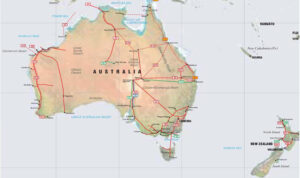World Archive

 The captain of the Japanese whaling ship, Nisshin Maru, has defended his actions during a collision with the Greenpeace-owned vessel, Arctic Sunrise as being undertaken “purely for research purposes” as part of an ongoing program to establish whether a more institutionalised cull of activitists may be needed.
The captain of the Japanese whaling ship, Nisshin Maru, has defended his actions during a collision with the Greenpeace-owned vessel, Arctic Sunrise as being undertaken “purely for research purposes” as part of an ongoing program to establish whether a more institutionalised cull of activitists may be needed.
The captain of the Japanese whaling ship, Nisshin Maru, has defended his actions during a collision with the Greenpeace-owned vessel, Arctic Sunrise as being undertaken “purely for research purposes” as part of an ongoing program to establish whether a more institutionalised cull of activitists may be needed.

Speaking by satellite phone from onboard, captain Husao Fukaya insisted that he and his crew had nothing but the advancement of science in mind when he gave the order to hold fast to a collision course. “We respect the activists on a number of levels – for their strongly held views, for their willingness to put themselves at risk for a cause they believe in, and of course for their delicious flesh – a tender and succulent meat marbled with fats and just the faintest tang of a briny aftertaste.”
Political support by the Japanese Government for the Nisshin Maru’s account of the incident, which took place in international waters, was offered in Tokyo today. Defending the actions of the factory ship and her crew, Japanese Fisheries Minister Shoichi Nakagawa was quick to brush off outrage from environment groups and expressions of misgivings from foreign governments, including the UK, the US and Australia.
“We are committed to the sustainable use of marine resources, including sea-going mammals such as whales, dolphins and anti-whaling activists,” Mr Nakagawa said.
The Minister claims that the number of anti-whaling activists in the Pacific has now returned to healthy levels. “They’re far from an endangered species. In fact, we’re seeing them in numbers so great that they’re actually becoming a pest,” Nakagawa said. “If the current situation continues, we may even have to cull them French-style, with dynamite.”
Japan has also defended the actions of its whaling fleet on cultural grounds. “Like the whaling it was carrying out, the Nisshin Maru’s actions in ramming the Arctic Sunrise are part of Japan’s rich and unique cultural heritage,” he said. “In particular, the heritage of the kamikazes.”
Greenpeace was quick to reject the Japanese claims as “absurd and unjustifiable”, pointing to recent DNA research that suggested that despite the supposed imposition of a “scientific research program” on the activities of the Japanese whaling fleet, Tokyo sushi bars still regularly served meat from anti-whaling activists.
More like this
World Archive
Gary Gygax fails saving throw vs heart attack
World Archive



